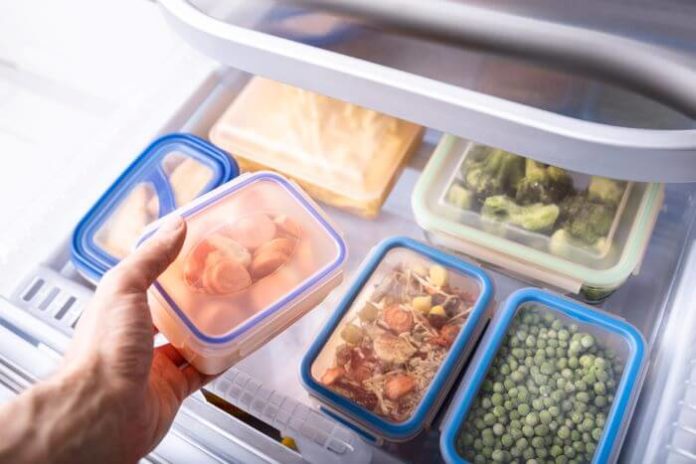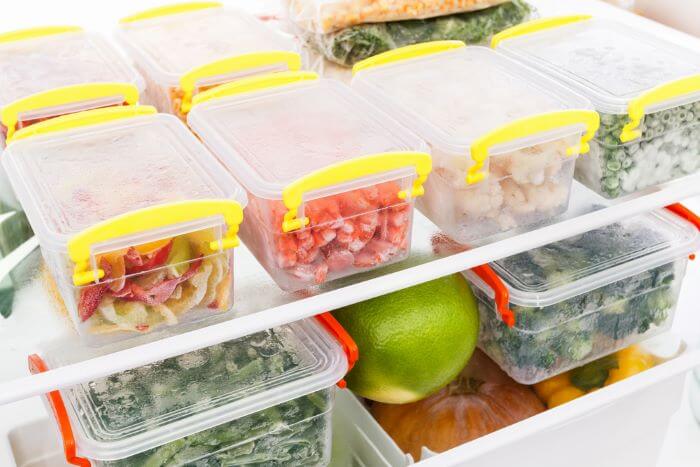Starting a frozen food business is not rocket science. You can start a frozen food business with very little expense. Freezing has become such an important process in the food preservation process. Freezing comprises rapidly freezing a healthy foodstuff in a perfect state of freshness, by lowering its temperature quickly to minus 18° C. Preservation treatments applied to food aim to preserve their edibility and their taste and nutritional properties by preventing the development of bacteria, fungi, and microorganisms they contain, which can sometimes lead to food poisoning. With the high demand for fresh foods and the importance of food preservation, it is worthwhile to consider opening a frozen food business.
RELATED ARTICLE: HOW TO START A FOOD PRODUCTION BUSINESS
What is Frozen Food?
Frozen foods are food products that have been intensely lowered from around their natural -40°C to about -18°C. The water in frozen foods is turned into ice, with tiny crystals formed between the cells, without altering the food’s flora. When foods are, their organic activity pauses, and their nutritional assets freeze. Its microorganisms also sleep. The transformations of enzymes and bacteria are then interrupted. This natural phenomenon will continue as long as the temperature does not exceed -18°C.
Is It Profitable to Open a Frozen Food Business?
Many years ago, in every family’s backyard was a garden where they rear livestock and cultivate vegetables. Then there is an abundant supply of fresh meat, vegetables, or any other type of fresh food for everyone. Today, the story is different; development has left us with no farms, and the need to make money has also made us too busy for farming. The implication of this is that we will have to eat junk foods, or foods full of unhealthy chemical preservatives. But more and more people know better than stuffing their stomachs full of these chemically saturated foods; hence, many people are looking for a healthy source of fresh food, and that is where the frozen food business owners fill the gap.
According to a report about Frozen Food Production in the US, there are only about 797 frozen food businesses in the whole US. A fair distribution of these puts the figure at an abysmal average of 15 businesses per US state. According to the same report, the market size of the frozen foods business is currently at $38 billion and employs only about 94,658 Americans.
Several reports have also shown that the demands for frozen foods are on the increase. Peter Bartzis, the Director of Devanco Foods in mid-2021, stated that the demand for the company’s retail sales made a 150% leap during the 2020 COVID-19 pandemic lockdown. Progressively, their post-pandemic sales maintained a 40 to 50% impressive growth.
The above summary shows a little about the promising potentials of the frozen food business. However, there are other impressive business opportunities in the hospitality industry.
Does Frozen Foods Business Need Office Space?
Yes, office space is one of the most important requisites of opening a frozen food business. You need a spacious environment that will effectively house all your cooling systems, such as refrigerators and freezers.
What are the Legal Requirements for Frozen Foods Business?
The frozen food business, just like any other food business, has strict regulations. You will need:
#1: Registration of a Frozen Food Business
It is important to register your business to show that you are serious and give your business some legal backing. In the US, you may register as a Sole Proprietorship or a limited liability company (LLC). An LLC is most recommended because it gives an artificial personality to your business.
#2: Tax Registration for Frozen Food Business
US residents must get the Employer Identification Number, which gives their business identity. You can start the EIN online registration right now.
#3: Licensing for a Frozen Food Business
In the US, the Food and Drug Administration (FDA) regulates food and drug-related businesses. Outlined on the FDA official website is information about licensing for food businesses.
#4: Insurance for a Frozen Food Business
Aside from the General Liability Insurance, there are many other insurance policies for frozen food business owners.
We recommend that your chosen insurance should cover the following:
- Business owner’s policy
- Health and Medicals
- Disability insurance
- Liability insurance
- Workers’ compensation
- Payment protection
RELATED ARTICLE: HOW TO START A STREET FOOD BUSINESS
How to Start a Frozen Food Business Proper
#1: Academic Qualifications of a Frozen Food Business Owner
There is no stipulated education mapped out for frozen food shop business owners.
However, vast and verified knowledge of the food industry is important. You can learn about the FDA’s recommendation for safe food storage.
#2: Get Practical Frozen Food Business Experience
You will enjoy a better advantage if you get practical knowledge from experienced frozen food business owners. Some first-hand information you will get from them includes where to buy wholesale frozen foods, the best-frozen food niche, and how to sell. Other information also includes some frozen food best storage practices, and many more.
#3: Choose a Frozen Food Business Niche
Business owners sell thousands of foods frozen; from frozen vegetables to frozen meats, there are ample choices available. This means that you will probably never be everything for everyone. But it also means there are plenty of opportunities to specialize. Choose products that are easy to buy and sell. If you have a unique product to deal with, you can start from there. If not, look for wholesalers that sell unique products that aren’t available in your area.
#4: Create a Frozen Food Business Plan
Draft a good business plan around your products and their marketing strategy, which should include studies of the frozen food industry in your area, your planned marketing plan, a budget, a list of equipment you will need to run your business and your niche.
#5: Equip your Frozen Food Business
Having written your business plan, proceed to roll out the initial investments and start your business.
You will need:
-
A Business Space or a Shop
Get a spacious place that will take all the gadgets for your frozen food business. Ensure that your shop is in a densely populated environment, and easily accessible to residents.
-
The Interior Layout
Your frozen food shop must be hygienically furnished and adequately equipped. Starting from the facilities to moving in the freezers and refrigerators and packaging materials. You will learn about the best types of equipment for the frozen food business while getting practical experience.
-
Location Signage
Advertising is one of the important ingredients for a successful business, and signage is often an underestimated advert media. The signage tells the public that your frozen business is in existence, and it outlines the types of frozen food you sell.
-
Business Car
This is not mandatory, but may be considered a necessity. A business car eases business operations. Be it for making purchases or delivery, if you can afford a business vehicle, do not hesitate to get one.
-
First stock of goods
Once you have put everything in place, then it is time to stock up. Ensure you do not play with standard because this will get you the best crop of loyal customers.
#6: Funding for Frozen Food Business
Considering the facilities and equipment needed to set up a frozen food shop business, the required startup capital may be huge for young entrepreneurs. Depending on your location, there are often grants available from both banks, the government, and NGOs. Inquire and find out if your business is eligible for such grants.
#7: Prepare your Frozen Food Business marketing strategy
Social media is a great tool in today’s business marketing. Another veritable tool is a well-designed and SEO-optimized website. For offline advertisements, consider using billboards, flyers, and handbills. Most importantly, sell only quality products, in this way, you will have return customers who will be happy to recommend you to others.
Conclusion
You have seen that starting a frozen food business is not rocket science after all. You have learned all that is needed to start your frozen food business. When you meticulously put the above tips to good use, you will have no difficulty succeeding as a frozen food seller.
RELATED ARTICLE: HOW TO START A FOOD TRUCK BUSINESS








